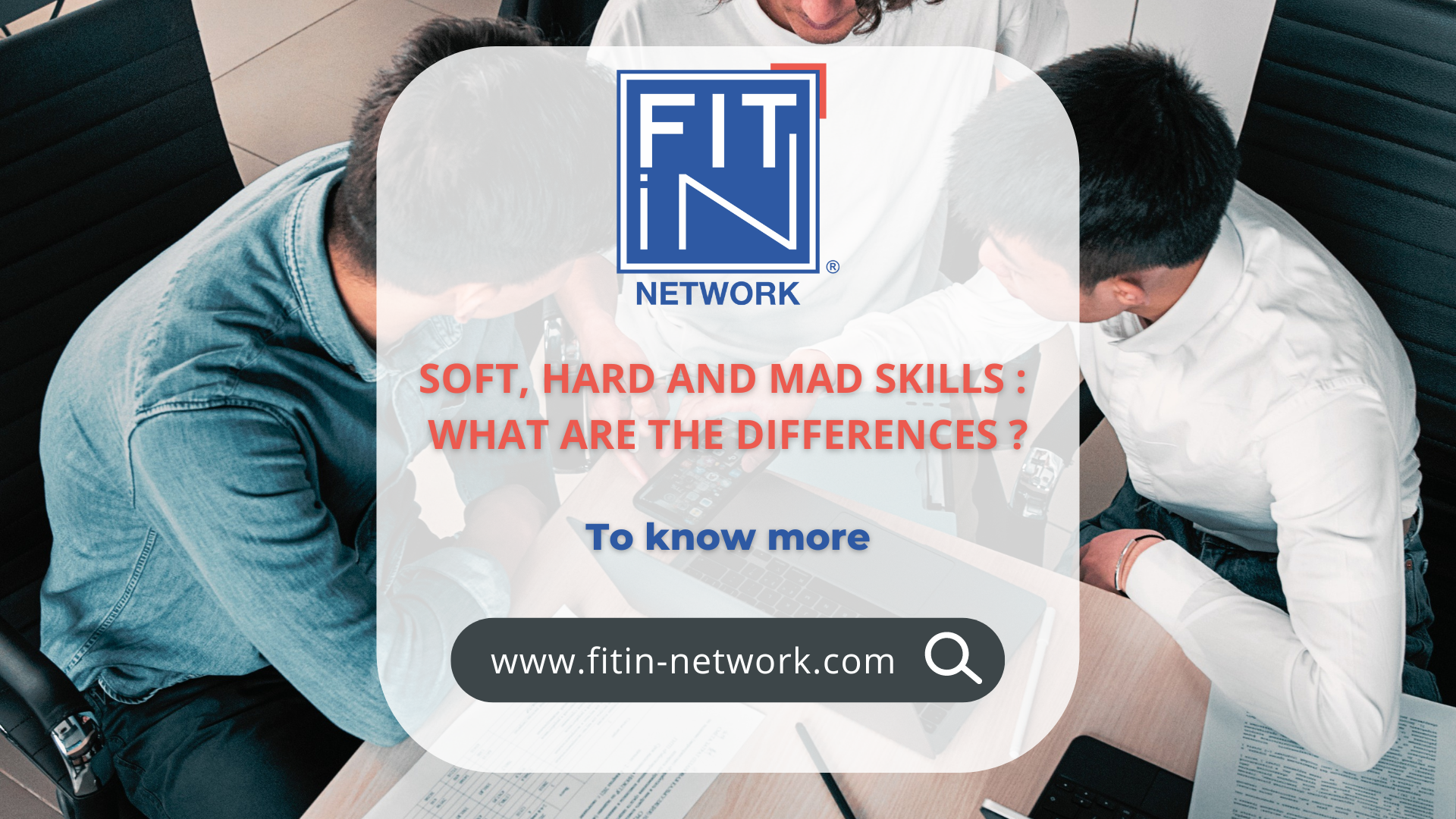
Soft, Hard and Mad Skills: What are the differences?
When it comes to recruiting the right candidate, knowing how to identify his or her skills is undoubtedly one of the most important elements. However, skills are not a universal category. Employers generally look for different types of skills that can set a candidate apart from the rest.
These skills are generally classified into technical skills, behavioral skills and atypical skills.
While all skills are important to a recruiter, some skills may be more relevant to some positions than others. To choose the right candidate, recruiters need to understand the skills required for the job, and look for the candidate with the most suitable skills.
Hard Skills or technical skills
Hard Skills are specific abilities and skill sets that individuals possess and are able to demonstrate.
They encompass everything learned at school, in training or on the job, such as the ability to speak a foreign language, to use a computer tool or language, or a diploma/licence/master's/doctorate. They help recruiters check at a glance whether the candidate's profile and the position to be filled are compatible.
They are therefore skills that can be learned, enabling individuals to perform specific job-related tasks, or those that may be required for a particular position. Candidates with the right hard skills are capable of producing concrete results and making an immediate contribution to the company's objectives.
It is therefore important to focus on this category of skills and assess what the candidate has to offer in this area.
Soft skills or social skills
The term " soft skills " refers to the personal and interpersonal skills possessed by an individual that can be useful in a professional environment. Soft skills are associated with personality, character traits and behaviors that affect the way a person works with others, communicates, manages time and solves problems.
Unlike hard skills, which are specific to a task or profession, soft skills are applicable to a wide range of jobs and industries . Common examples of soft skills include good communication, conflict resolution, time management, teamwork, critical thinking and adaptability.
You can ask targeted questions to assess your candidates' soft skills, such as their ability to communicate effectively or their critical thinking skills.
While hard skills are essential, they are only part of the equation. Behavioral skills are just as important to success in a job!
What are mad skills?
After the craze for soft skills and hard skills, mad skills made their appearance and set the trend. Also known as mad or atypical skills, they enable candidates to stand out from the crowd.
Mad skills is a concept straight out of Silicon Valley. It encompasses atypical, singular and original skills, as well as skills derived from an individual's personal life.
The range of atypical skills is very broad and includes several categories, such as sporting activities, artistic pursuits, personal experiences, volunteer work and personal interests.
Paying particular attention to the "Interests" section of CVs is becoming increasingly important. The mad skills you can find there will help you identify candidates who can bring originality to your teams.
Finally, atypical profiles can be beneficial to a company, bringing a breath of fresh air and novelty!
Essential skills for success: Hard, Soft and Mad Skills
It's important to understand that " Hard Skills", " Soft Skills " and " Mad Skills " are not isolated skills, but rather complementary elements that together form a holistic skill set. People with these skills are often passionate about their area of expertise, and can inspire others to reach their full potential.
To succeed in your recruitment process, we therefore advise you to find the perfect balance between these 3 skills in a candidate. It's the only way to add real value to your business!
Source: https://www.rh-partners.com/la-reconnaissance-au-travail/
Not yet a member of FIT in NETWORK®?
THE European network of available skills
👉 Create or update your profile on FIT in NETWORK® https://bit.ly/2ABuiFu
👉 Follow our professional page on LinkedIn: https://bit.ly/2XRcAWs
👉 Become a Premium Expert and benefit from priority access to all our opportunities as well as many other services https://bit.ly/2XYvOt0
Find out why empathy has become an important skill in the professional world.
👉 https://www.fitin-network.com/fr/actualites/lempathie-la-competence-de-leadership-la-plus-importante/
